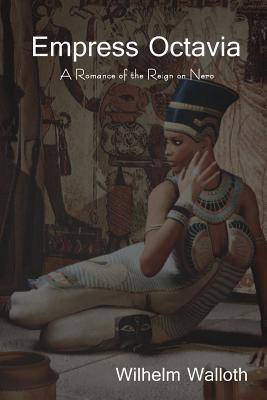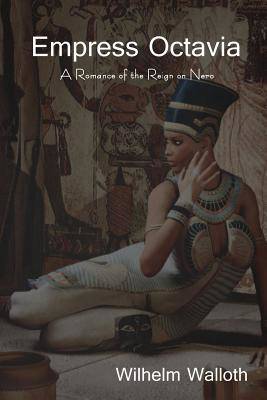
- Afhalen na 1 uur in een winkel met voorraad
- Gratis thuislevering in België vanaf € 30
- Ruim aanbod met 7 miljoen producten
- Afhalen na 1 uur in een winkel met voorraad
- Gratis thuislevering in België vanaf € 30
- Ruim aanbod met 7 miljoen producten
Omschrijving
Ancient Egypt's setting, pertaining to romance, Politics and everyday life...
Wilhelm Walloth (1854-1932) was a German writer.
His parents died very early, so that Wilhelm Walloth and two-year younger brother Frederick grew up as orphans in a childless couple Hessian. Although well protected, Walloth often sickly. At age 17, he lost his beloved foster mother.
Early Walloth wrote poems, his idol was Ludwig Uhland . First Walloth saw his future in painting, but then studied in Heidelberg philosophy, aesthetics and literature. During this time, his first poems in 1882 already appeared in book form. In the following years he turned entirely on the painting out and wrote his most important historical novels and contemporary novels and proved his enormous poetic power. His novels were imbued with the naturalism and leading naturalists as Michael Georg Conrad, Konrad Alberti and Karl Bleibtreu saw in Walloth an innovator of the historical novel. Because of this proximity to the naturalists, the prosecutor discovered his books and in 1890 he became, together with Konrad Alberti and other writers in Leipzig realist process charged with "lewd writings". After his studies back in Darmstadt, he was exposed to new hostilities. Reason was his friendship with the high school students Nodnagel Paul, under the pseudonym G. Ludwig in the literary journal The Company had praised novels Walloths. The precocious and gifted boy committed suicide, and because Walloths reputation as a nerd and his role in the literary process this fact was attributed to the use of the poet. A few years later moved Walloth to Munich, where he remained until his death. There he turned to the writing of plays, but they were received with little success. The study of homoerotic love affairs ( A nerd, Eros ) and a certain pessimism of the author, the main characters often end with suicide, and the bankruptcy of his former publisher Wilhelm Friedrich had a low perception of the works in the public order. Walloths major works' Tiberius and Octavia were reissued in 1917 in the series "novels of world literature" by the publisher Hesse & Becker. His wealth lost due to inflation after the First World War, he had to rely on the help of well-meaning people. In his last years he dealt with the theosophy of Rudolf Steiner .
Wilhelm Walloth continued to write until his death in 1932, but he was almost forgotten and many of his manuscripts from this period were lost. (wikipedia.org)
Specificaties
Betrokkenen
- Auteur(s):
- Uitgeverij:
Inhoud
- Aantal bladzijden:
- 148
- Taal:
- Engels
Eigenschappen
- Productcode (EAN):
- 9781604448733
- Verschijningsdatum:
- 14/06/2018
- Uitvoering:
- Paperback
- Formaat:
- Trade paperback (VS)
- Afmetingen:
- 152 mm x 229 mm
- Gewicht:
- 226 g

Alleen bij Standaard Boekhandel
Beoordelingen
We publiceren alleen reviews die voldoen aan de voorwaarden voor reviews. Bekijk onze voorwaarden voor reviews.











